Jessica was going to write this post. She recently left for Oaxaca on a month-long Spanish immersion adventure. And she got caught up with wrapping things up before she left. So I’ll have a go. Though I hope she’ll still share her thoughts on the topic some day.
The topic is Persephone Days. I hadn’t heard of these until Jess mentioned them recently. So this was her idea. Due credit and Buen Viaje to Jessica!
Persephone Days: The time of year when the number of daylight hours dips below the amount that most plants need to grow. This causes plant growth to slow, and in some cases stop. The days of low daylight are named after Persephone of Greek mythic fame who, the story goes, succumbed to a bargain between her mother, Demeter (goddess of agriculture), and Hades (god of the underworld), determining the division of Persephone’s time split between earth and the underworld.
This was after Hades stole Persephone away and Demeter abandoned her agricultural goddess duties to scour the world for her missing daughter. The myth explains that this caused the season of winter. When Persephone, goddess of spring and queen of the underworld, leaves the earth yearly at the appointed time to join Hades down below, the land turns barren as Demeter once again grieves her daughter’s absence. In these longer hours of darkness the plants go dormant and the cold makes the people hug the fireplace and tell these old stories so we remember to rest too.

These currently are the days of Persephone’s descent. The plants and the land rest. Practically for farmers and gardeners who want winter vegetables, we plan our planting so that our plants are mature before the Persephone Days set in. The Persephone Days occur when there are less than 10 hours of sunlight in a day, roughly late November to early February, depending on your location. This year we planned ahead for a bumper broccoli crop.
It’s fitting to be writing this on the Solstice. We celebrate the return of the light and look forward to Persephone’s return. Her footfall on the land of the living foretells springtime. Fitting too that our farm has its own Persephone. You probably know her as Persie. Our little white scruffy Persephone is very sad right now about Jessica being away in Mexico, like how Persephone from the myth missed her mother while at Hades’ side in the world of the dead.

If you’ve been here to Terra Cultura then you know, Persie is the star and the rest of us are supporting characters. You learn this quickly, because when Persie chooses to emerge from the couch and grace us with her brilliance, everyone around exclaims “Persiiieeee” in high pitched voices. Sweet as spring, she’s sure to lick your nose, inside your nose actually, if you’re feeling sad. But true to the darker side of her namesake, she’ll also summon her legions if you don’t deliver her a treat when she demands it, doing many cute dances and jigs and snorts and whimper-songs to persuade you if you stall. So we all just do what she tells us. Better to stay on her good side.
We dedicate this post to Persie. She may not have the power to bring forth the spring but she does some good digging at gopher holes. Actually what would really cheer her up is if you give her cheese. Bring cheese. And take a hint from the plants, and from Persie’s long naps on the couch, and enjoy some well needed rest. Happy Solstice, and brighter days ahead!


0 Comments